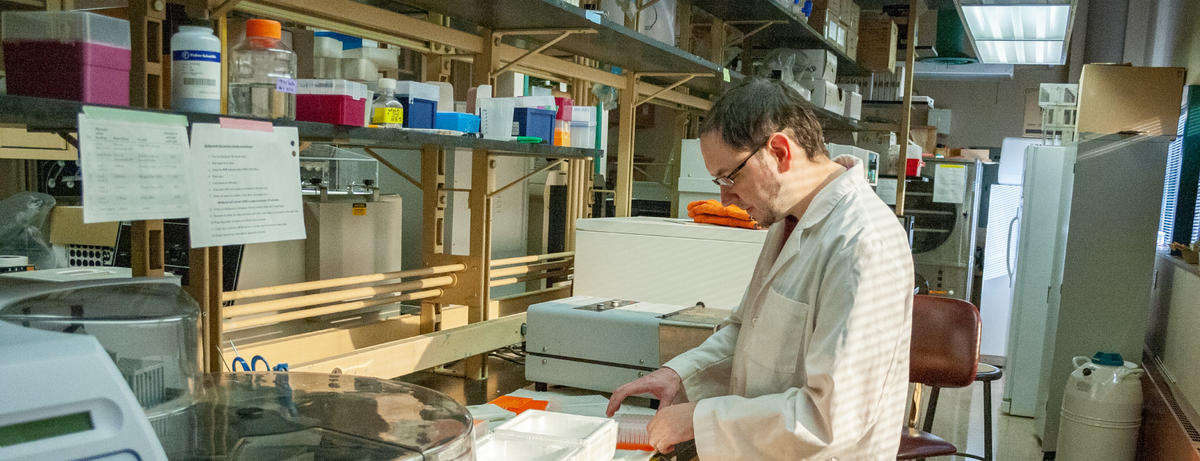
Researcher at work in the Wyse lab
Background
Palmer amaranth (Amaranthus palmeri) is a weedy annual originally native to the southwestern US and northern Mexico. It can grow several inches in a day, and a single plant can produce as many as one million seeds. In Minnesota, Palmer amaranth is regulated as a prohibited noxious weed. It was only recently introduced to the state via contaminated seed mixes used for conservation plantings. It can reduce corn and soybean yields by 80-90%.
The results of this project will help regulators better identify Palmer-contaminated seed mixtures to protect agricultural lands. Researchers developed a more efficient means of physically separating amaranthus seeds from other types to drastically increase the volume of seed analysts can test overall. They will also produce a reliable, affordable DNA test for Palmer amaranth identification.
With the help of state partners like the Minnesota Department of Agriculture, the resulting test protocol will provide a strong basis for a proactive seed certification program.
Research questions
- How can analysts efficiently separate amaranth seeds from other seed types in a mix for a pure sample prior to molecular analysis?
- Can existing DNA markers of Palmer amaranth be validated for implementation in a reliably accurate genetic test?
- What additional DNA markers can be used to increase the accuracy of a positive identification of Palmer amaranth?
Outcomes
This project created a highly reliable test for detecting Palmer amaranth in individual plants and pools of seed. The test is commercially viable and will be an important tool for Minnesota farmers, crop consultants, and agronomic specialists.
This project has also resulted in the creation of a large body of genetic sequence data for pigweeds assembled from across a wide geographic range. This data will be a valuable resource for future work on Palmer amaranth and related pigweed species, and will be made publicly available through NCBI.
Publications
- Timeline of Palmer amaranth (Amaranthus palmeri) invasion and eradication in Minnesota (Weed Technology, 2021)
- A needle in a seedstack: An improved method for detection of rare alleles in bulk seed testing through KASP (Pest Management Science, 2021)
Outreach
- National meeting of the Ecological Society of America, 2020
- Upper Midwest Invasive Species Conference, 2020
- Applied Plant Science Seminar at UMN, 2019
- Seminar at Colorado State University, 2019
- New genetic test for Palmer amaranth (video, Anthony Brusa, 2019)
- Upper Midwest Invasive Species Conference and North American Invasive Species Management Association, 2018
News and media
- U of M researchers develop 99.9% accurate genetic test for early detection of Palmer amaranth (University of Minnesota Research Brief, 2021)
- Protecting Minnesota's corn and soybeans (video, KSTP-TV)
- Researchers develop genetic test to detect pigweed (High Plains Journal, 2021)
- Researchers Develop Genetic Test 99.9 Percent Effective In Detecting Palmer Amaranth (WNAX Radio, 2020)
- Sorting Seed: How a New DNA Test will Improve Palmer Amaranth Detection (MITPPC, 2019)
- Meet the Researcher: Anthony Brusa (MITPPC)
- Palmer Amaranth Summit in Review (MITPPC, 2019)